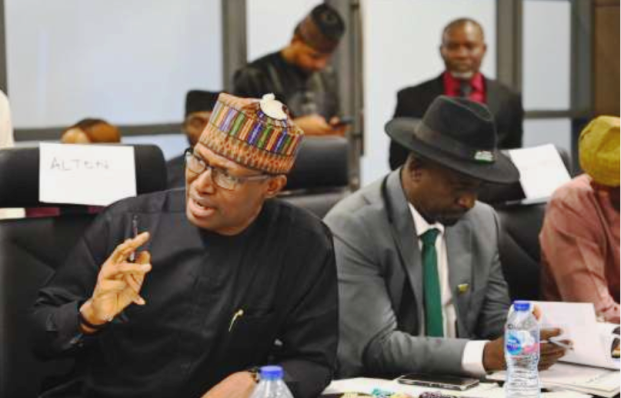Nigerian Telecom Sector Faces Crisis as Operators Call for Immediate Tariff Adjustments
The Nigerian telecommunications industry is on the brink of significant disruption. Telecom operators are set to implement service shedding starting January 2025 if urgent regulatory action is not taken. This stark warning was issued by Gbenga Adebayo, Chairman of the Association of Licensed Telecommunications Operators of Nigeria (ALTON), in Lagos.
RELATED: Government must enable proper pricing, critical infrastructure for telecom sector’s viability – ALTON’s Adebayo
Adebayo emphasised the need for an upward review of tariffs, pointing to a myriad of economic challenges undermining the sustainability of telecom services in the country.
“Operators may not be able to provide services in some areas and at certain times of the day, leaving millions disconnected,” he warned. “There will be significant economic fallout, as businesses will suffer from a lack of connectivity, stalling growth and innovation.”
Key Challenges Facing the Sector
- Skyrocketing Operational Costs:
- Escalating diesel prices for powering base stations.
- Rising importation costs of telecom equipment.
- Volatile exchange rates and depreciation of the naira.
- Stagnant Tariffs:
Despite these mounting financial pressures, telecom tariffs have remained unchanged, leaving operators unable to sustain service delivery or invest in network upgrades. - Economic Impact:
A failure to address these challenges could lead to national economic disruptions in sectors such as commerce, healthcare, education, and security, which rely heavily on telecom infrastructure.
Industry wants Decisive Action
Adebayo and other industry leaders, including the Association of Telecom Operators of Nigeria (ATCON), have long lobbied for tariff adjustments to reflect the economic realities of providing telecom services. “This is not a time for further deliberation or delayed decisions,” Adebayo stated. “Without immediate reforms, the telecom sector’s survival is at risk.”
He described the current situation as the industry’s “last days” unless decisive action is taken to ensure its sustainability.
The Potential Fallout of Service Shedding
Should service shedding commence in January, the consequences could be severe:
- Millions Disconnected:
Reduced service availability will leave many Nigerians without reliable connectivity. - Economic Fallout:
Businesses reliant on telecom services will face disruptions, hampering growth and innovation. - National Impact:
Key sectors such as security, commerce, healthcare, and education will face critical challenges due to compromised telecom infrastructure.
Hope for a Better 2025
Despite these dire warnings, industry stakeholders believe there is still an opportunity to turn the tide. Adebayo expressed optimism for 2025, stating, “A better 2025 is possible, but only if we act now. Let this be the moment we acknowledge the urgency of the situation and commit to saving this sector.”
He called on all stakeholders, including regulators, policymakers, and industry players, to collaborate and implement necessary reforms to secure the future of Nigeria’s telecom industry.
Tariff adjustments and strategic interventions
According to experts, the Nigerian telecommunications industry stands at a critical crossroads. Without immediate tariff adjustments and strategic interventions, the sector risks collapse, with far-reaching consequences for the nation’s economy and digital transformation goals. However, with swift and decisive action, 2025 could mark a turning point for the industry—ushering in a new era of resilience, innovation, and sustainability.
Nigeria to Implement 40% Telecom Tariff Increase in January 2025?
The Nigerian government has reportedly approved a 40% increase in telecom tariffs, effective January 2025. This is not confirmed as the Nigerian Communications Commission (NCC) is yet to release an official statement. This development comes as the telecom industry grapples with rising operational costs and inflationary pressures.
Operators’ Push for Tariff Hike
Telecom operators are increasingly warning that with without appropriate tariff adjustments, the industry risks stagnation, network degradation, and potential shutdowns.
Karl Toriola, CEO of MTN Nigeria, previously cautioned that without tariff adjustments, the company might cease operations, jeopardizing services for its 78 million subscribers.
Share your thoughts on future of Nigeria’s telecom industry
Join the conversation! Share your thoughts on the future of Nigeria’s telecom industry and the critical reforms needed to keep millions connected.

































